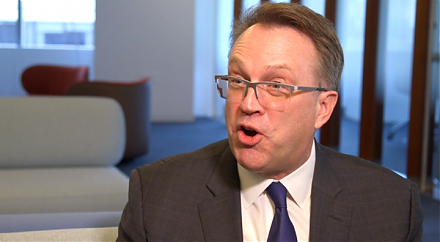

2019-04-19 12:35:00 Fri ET
stock market competition macrofinance stock return s&p 500 financial crisis financial deregulation bank oligarchy systemic risk asset market stabilization asset price fluctuations regulation capital financial stability dodd-frank
Federal Reserve proposes to revamp post-crisis rules for U.S. banks. The current proposals would prescribe materially less strict requirements for community banks and regional financial institutions with less systemic risk exposure, whereas, the most stringent requirements remain for big banks that pose the greatest risks to the U.S. financial system. The most stringent requirements include the Dodd-Frank macroprudential stress tests that focus on the main vulnerable parts of the financial system such as residential mortgages, auto loans, and corporate credit lines. The new rules would significantly reduce regulatory barriers for small community banks and regional financial institutions. Specifically, the smaller deposit-takers operate within the reasonable range of $100 billion-$250 billion in total assets. U.S. banks that operate with $250+ billion total assets (or $75 billion cross-jurisdictional capital flows) would continue to meet the same prudential standards such as high liquidity coverage and sufficient core equity capital adequacy etc.
The U.S. globally systemically important banks (GSIBs) would continue to conduct the Federal Reserve macro stress tests each year, but these GSIBs would report the test results only once every 2 years. These recent institutional arrangements help ensure a balance between macro-financial stabilization and micro-prudential deregulation.
If any of our AYA Analytica financial health memos (FHM), blog posts, ebooks, newsletters, and notifications etc, or any other form of online content curation, involves potential copyright concerns, please feel free to contact us at service@ayafintech.network so that we can remove relevant content in response to any such request within a reasonable time frame.
2025-04-30 08:27:00 Wednesday ET

The multiple layers of the world cloud Internet help expand what can be made digitally viable from electric vehicles (EV) and virtual reality (VR) headsets
2019-09-19 15:30:00 Thursday ET

U.S. yield curve inversion can be a sign but not a root cause of the next economic recession. Treasury yield curve inversion helps predict each of the U.S.
2019-02-28 12:39:00 Thursday ET

New York Fed CEO John Williams sees no need to raise the interest rate unless economic growth or inflation rises to a high gear. After raising the interest
2019-11-06 12:29:00 Wednesday ET

Our fintech finbuzz analytic report shines fresh light on the fundamental prospects of U.S. tech titans Facebook, Apple, Microsoft, Google, and Amazon (F.A.
2018-06-25 12:43:00 Monday ET

Apple and Samsung are the archrivals for the title of the world's top smart phone maker. The recent patent lawsuit settlement between Apple and Samsung
2018-11-30 12:42:00 Friday ET

Andy Yeh Alpha (AYA) AYA Analytica financial health memo (FHM) podcast channel on YouTube November 2018 AYA Analytica is our online regular podcast and news